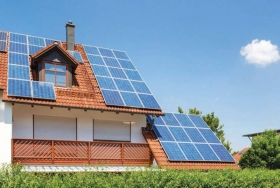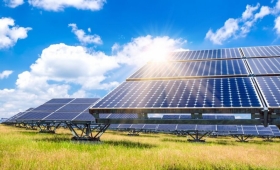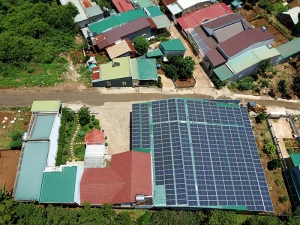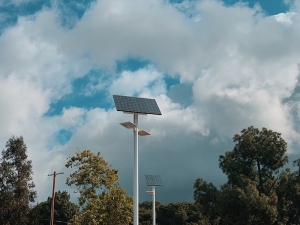Can a solar panel work at night?
- 05-01-2022 09:19:00
- 33
Working mechanism of solar panels:
- Normally, solar panels absorb heat and generate energy.
- These plates generate heat and radiate it back to the atmosphere, radiating heat in that direction.
- The key to the panels being able to do that is by maintaining a temperature difference between the photocell and the atmosphere.
A solar panel that works at night?

According to the researchers: A specially designed photovoltaic cell can produce up to 50 watts of power per square meter under ideal conditions at night. That's about 25% of what a typical solar panel can produce during the day.
Jeremy Munday, a professor in the UC Davis Department of Electrical and Computer Engineering, and graduate student Tristan Deppe are co-authors of this idea published in this month's issue of the journal ACS Photonics.

A standard solar panel best absorbs the sun and converts it into energy. Munday explains the reason for this is that “an object hotter than its surroundings gives off heat in the form of infrared light. Because a standard solar panel is much cooler than the sun, it absorbs light. That light causes a voltage to pass through the device. Electric current is then generated and electrical energy is generated. "
On the other hand, at least outer space has a lower temperature. So if there is a warm object facing the sky, it will radiate heat in that direction. It was the basis for the operation of Munday and Depp's equipment.
“In the new solar panels, light is emitted and the current and voltage go in the opposite direction than usual, but still generate electricity," Munday said. "You have to use different materials, but the physical properties are the same."
In other words, these heat-sensing cells, as their name suggests, generate energy by radiating heat to their surroundings. If one were to point this heat-sensing cell at the night sky, it would emit infrared light - precisely because it is warmer than outer space.
Solar panels that can work at night are possible in the future
"We were thinking, what if we took one of these devices and put it in a warm area and pointed it up into the sky," Munday said.
The key to doing all that is by maintaining the temperature difference between the cell and the sky.
Munday explains, “The technique is not new – humans have been using it for night-time cooling for hundreds of years. However, over the past five years, there has been a great deal of interest in devices that can do this. this all day."
The new night solar panel can also work during the day. Depp and Munday estimate that “if a night-capable [photovoltaic] unit is deployed alongside conventional solar modules after sunset, a solar farm can be can produce 12% more electricity."
Munday and Depp are developing prototypes of these night-time solar cells that can generate small amounts of energy. Prototypes aim to further improve the product and make it more powerful and performant.
As global markets continue to move towards reducing carbon and people continue to innovate, so the article concludes: "The sun is more than just looking up to the sky to produce electricity." In the future solar panels can work at night. We should hope for that, faith in future wisdom.
Above is the information shared by Intech Energy, compiled from reputable information sites, especially from the source article: https://weather.com posted by Rachel Delia Benaim, hopefully will be useful for readers.
Sincerely thank you!
News other
-

How many types of solar inverters are there?
10-01-2022 17:15:06 Details
-

Install a solar battery system properly
10-01-2022 16:25:02 Details
-

The Vietnam Renewable Energy Community organizes a Caravan journey towards the Central region
10-01-2022 09:12:28 Details
-

Solar panel system rotates in the direction of the sun – Up to 30% higher efficiency
10-01-2022 09:11:15 Details
-

Why is solar power in the Central Highlands extremely ”hot” in 2020?
10-01-2022 09:04:02 Details
-

What are solar lights?
10-01-2022 09:01:07 Details


